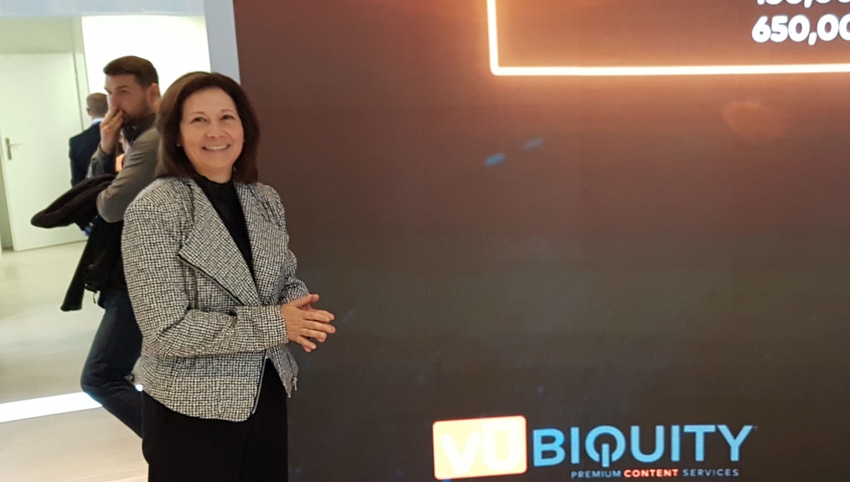Conversations at MWC 2018 with a couple of telecoms vendors reveal a more pragmatic, bespoke approach to doing business.
February 27, 2018

Conversations at MWC 2018 with a couple of telecoms vendors reveal a more pragmatic, bespoke approach to doing business.
One manifestation of this is a tendency to move away from telecoms-specific vernacular to the language of the broader tech industry. So we no longer use defensive, them-and-us language like OTTs to describe internet companies and vendors such as Openet and Amdocs seems to be avoiding categorising their offerings along traditional lines such as BSS, in favour of the more customer-centric language of ‘solutions’.
Niall Norton, CEO of Openet, has been banging this drum for a while. He is trying to bring the kind of customer-centricity we associate with companies like Amazon to the telecoms B2B space by introducing greater flexibility to his offerings. The ultimate purpose of this seems to be to enable CSP customers to buy only what they need, when they need it.
In many ways this is counter-intuitive in an industry that has historically aimed for ‘vendor lock-in’, by selling massive end-to-end packages that make the customer umbilically dependent on the vendor indefinitely, for fear or the disruption that starting again with someone else will cause. The dependency creates the opportunity to charge high margin servicing and consulting fees whenever the CSP wants to change or upgrade anything.
But Norton’s bright idea is that by offering more bespoke packages he not only lowers the barriers to entry for making any kind of sale, but the CSP will hopefully end up spending more down the line when the business benefits of what they have already bought prove themselves.
Over at Amdocs the big news there is the recent acquisition of video-on-demand specialist Vubiquity, which only completed a few days before the start of the show. The most intriguing aspect of this piece of M&A was the clear statement of intent by Amdocs to cater to a growing trend in its core market: multiplay.
Operators all over the world are investing heavily in video provision and premium content to add spice and stickiness to their communications bundles. As we found when speaking to Vubiquity CEO Darcy Antonellis (pictured), the thinking behind the move is to put more tools at the disposal of its customers, and also to do so in a modular and flexible way to enable them to get to market faster.
Your average operator isn’t going to go toe-to-toe with Netflix or Amazon when it comes to on-demand video (one possible exception being AT&T if it ever completes its acquisition of Time Warner). But that doesn’t mean they can’t offer some genuinely valuable video services to end users, perhaps focusing more on niche and long-tail offerings and helping with their discovery.
Antonellis is now the GM of Amdocs’ newly-created media division, which further illustrate the strategic importance Amdocs is putting on servicing this area. She is a veteran on the broadcast and video industries and intends to confer some of that expertise onto the operator channel. Again, the emphasis will be on trying to deliver bespoke offerings, tailored to the unique business opportunities identified by each customer.
In keeping with the broader theme of this year’s show, the telecoms industry seems to be finally moving from the hype phase of the cycle towards seriously looking as business cases for the new opportunities we’ve been hearing about for so long. If vendors want operators to become more agile in order to take on the internet giants then their offerings need to match that. On the evidence of Openet and Amdocs at least, that seems to be exactly what they’re doing.
UPDATE – 13:00, 27 Feb 2018:
We met Jennifer Kyriakakis, Founder and Marketing VP of Matrixx Software after publishing this piece, but so much of what we discussed overlapped that we wanted to have it all in one place.
At the show Matrixx announced a deal win with Ooredoo in Oman that involved launching an ‘all-digital’ operator that focuses on providing individually customized mobile plans to consumers. Kyriakakis was keen to flag this up as a proof-point of what her company specialises in: helping operators with fast, flexible product development and delivery.
The reason this chimed with the rest of the story is that the resulting consumer offerings are very similar in spirit to the sort of thing we heard from Openet and Amdocs: highly customisable offerings that are designed to give the customer exactly what they want. Just as operators have tired of vendor lock-in on the B2B side, consumers are keen to stop paying for communications services they don’t use.
The new Ooredoo operator will not only enable regular fine-tuning of the package, but will even offer a mix or prepaid and postpaid services. It’s also relatively quick to market, which Kyriakakis thinks is attractive to operators looking to make sure they keep generating fresh profit centres as they gear up for the big 5G jamboree. So the agile, flexible model seems to be taking hold across the board.
About the Author(s)
You May Also Like








.png?width=300&auto=webp&quality=80&disable=upscale)


_1.jpg?width=300&auto=webp&quality=80&disable=upscale)


.png?width=800&auto=webp&quality=80&disable=upscale)